Everything You Need To Know About Why Rents Are Going Up
It's no secret that the housing market has been totally wild for buyers this year, but it's getting tougher out there for renters too.
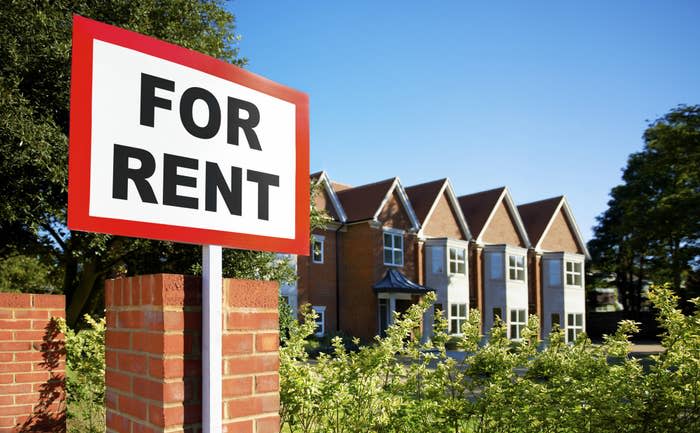
A recent study showed that rent is beyond unaffordable in every US state for full-time workers earning the current federal minimum wage, which has been set at $7.25 an hour for the last 12 years. To be able to afford the average one-bedroom apartment on their own, people would need to get paid $20.40 an hour, nearly three times the federal minimum wage.
To get the scoop on why rents are rising right now and what renters can do to protect their wallets, I reached out to Lauren Silbert, VP and general manager of the personal finance site The Balance.
So, what's driving rent prices up? Silbert says that offices reopening and workers returning to cities are among the factors making rents spike.

"As offices reopen and the job market picks up, we’re seeing a lot of renters who previously moved away or back home now rejoin the rental market," Lauren Silbert says. "Major cities like New York and San Francisco are seeing an influx of returning workers who left during the pandemic, though they’re not the only cities where rents are rising. In 44 out of the 50 largest metros in the US, median rents actually broke records in June. The median price of an apartment rental rose 9.1% in the first half of the year to $1,219 compared to $1,117 in January."
But a shortage of affordable units and regular seasonal shifts in pricing are also part of the reason why rents are going up.

"New apartment construction is down nationwide, and has been since 2017," Silbert notes. "Though new units are being added to the market, they’re not enough to counteract rising demand and increased costs of building. There’s also some seasonality to rent increases too. Rental prices normally fall during the winter season, and pick up again in the late spring, hitting peak prices mid-summer."
And the end of the eviction moratorium on July 31 could see rent prices going still higher.
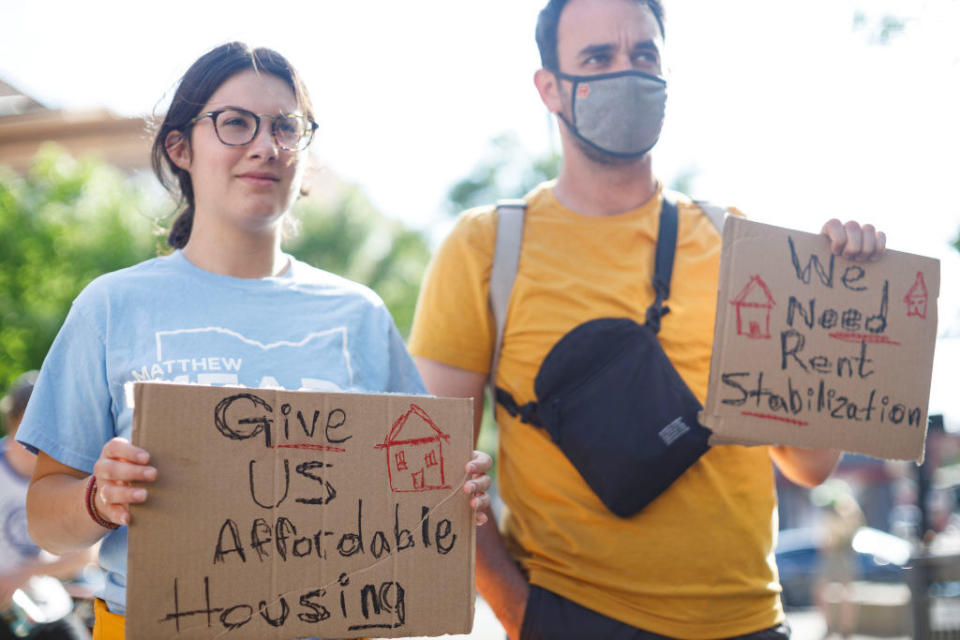
Unfortunately, Silbert says, "It’s likely that many owners will take the eviction moratorium’s expiration as an opportunity to raise rents for new and existing tenants. In New York City, rent increases were approved even for rent-controlled apartments in June, at a time when renters’ advocates wanted to freeze rates."
So if you're a renter, what can you do to cope? Silbert suggests looking at either downsizing your space, increasing your income, or even relocating to a less-expensive area, if possible.

"A lot of renters are going to find they can’t afford the same kind of housing they could before, and may need to weigh their options — whether that’s downsizing, negotiating a higher salary, making a career change, or relocating where costs of living are lower. If you’re in a position to work from home or relocate, there are still some areas offering cash or land incentives for workers to move there, including Vermont, Topeka, Kansas and Tulsa, Oklahoma."
If you currently live on your own, you might also consider getting a roommate to make rent more affordable. And if you haven't gone through your budget in a while, it might help to trim any unnecessary or unused expenses. Additionally, if your rent is stable for now, it might still be a good idea to cut down on some spending so you can stash more cash away in your emergency fund. That way, you'll have some reserves on hand just in case your rent rises soon.
But wait, what happened to the $45 billion in rental assistance that the federal government earmarked for state and local governments? There are still funds available for renters in need, but Silbert says you likely shouldn't count on getting aid quickly.
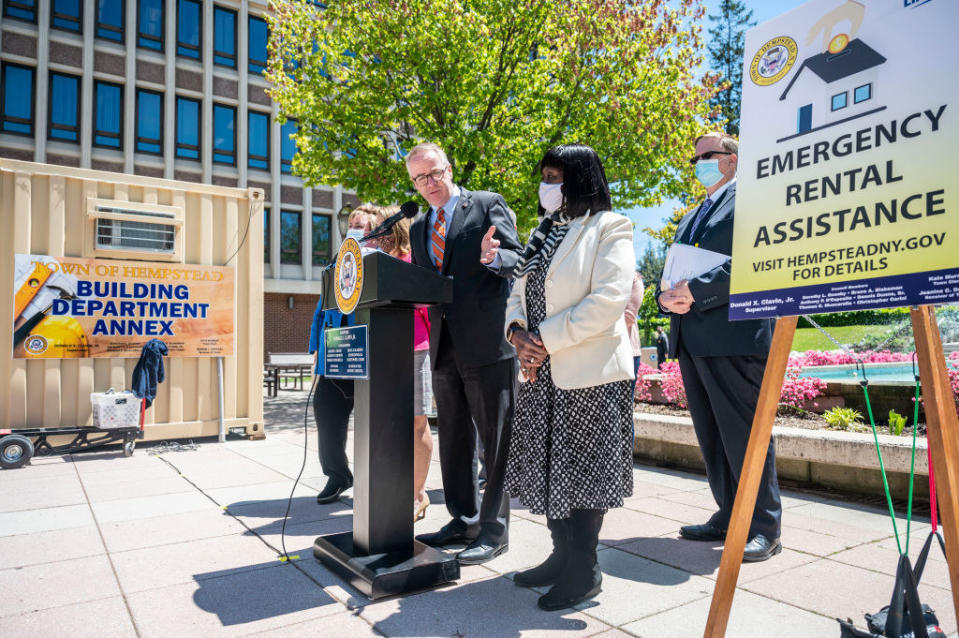
"Each state and city has its own resources, so renters should research what kind of aid is available locally and how to get it on a state-by-state basis. For example, New York State started accepting applications for rent relief in June," Silbert says. To start finding rental assistance and other programs near you, you can call the 211 hotline or search for your local 211 website, or you can use the rental assistance finder from the Consumer Financial Protection Bureau.
However, states have been slow in getting this money into renters' pockets, so even if you qualify for aid, it's probably best to have some kind of backup plan too. "Unfortunately, though, data from the National Low Income Housing Coalition shows that most states have only distributed a small fraction of approved rental assistance funds since March. Renters should make plans that they can fall back on, if at all possible."
Since rents are rising at a time when so many people are already struggling financially, you might be wondering what protections are in place to keep renters from getting priced out of their homes. Silbert says that you should check your local laws to find out if there are rent regulations in your area.
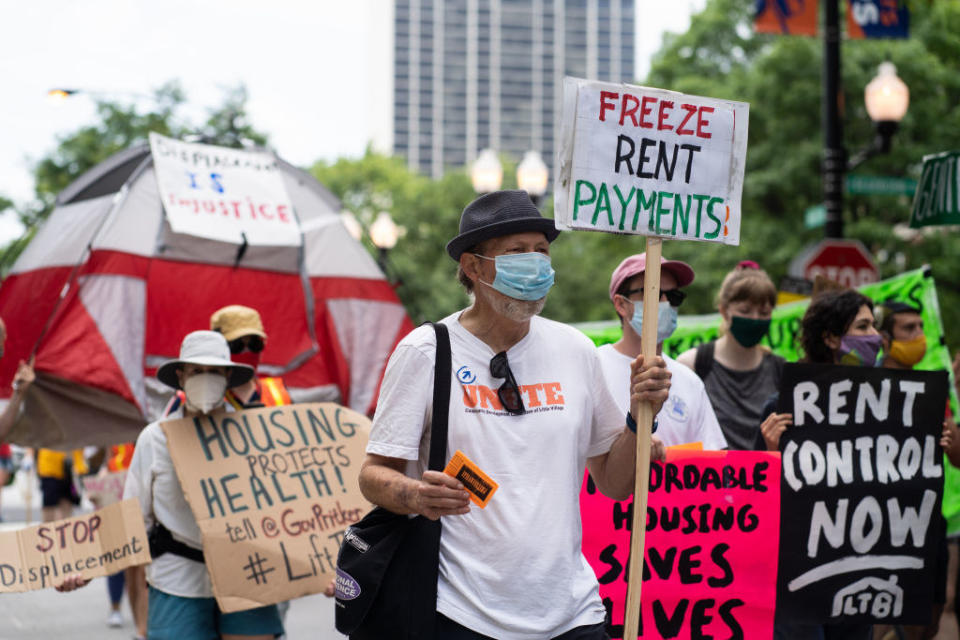
"More cities and states are enacting policies to increase their share of rent-stabilized housing and limit how much rent can be raised — but again, it really depends on where you live. Protections against rent increases may not be available for everyone who needs them, but if you’re considering moving or in the process of signing a new lease, be sure to find out what the maximum possible increase in your area is. For example, landlords in Oregon can’t raise the rent more than 7% plus inflation, but there’s no limit in states like Ohio and Alabama. If you know you’re likely to stay in a given area for several years, you can also try negotiating with your landlord for a better deal on a longer lease."
So what would it take to bring rent prices down and ease this pressure? It all comes down to the need for more affordable housing.
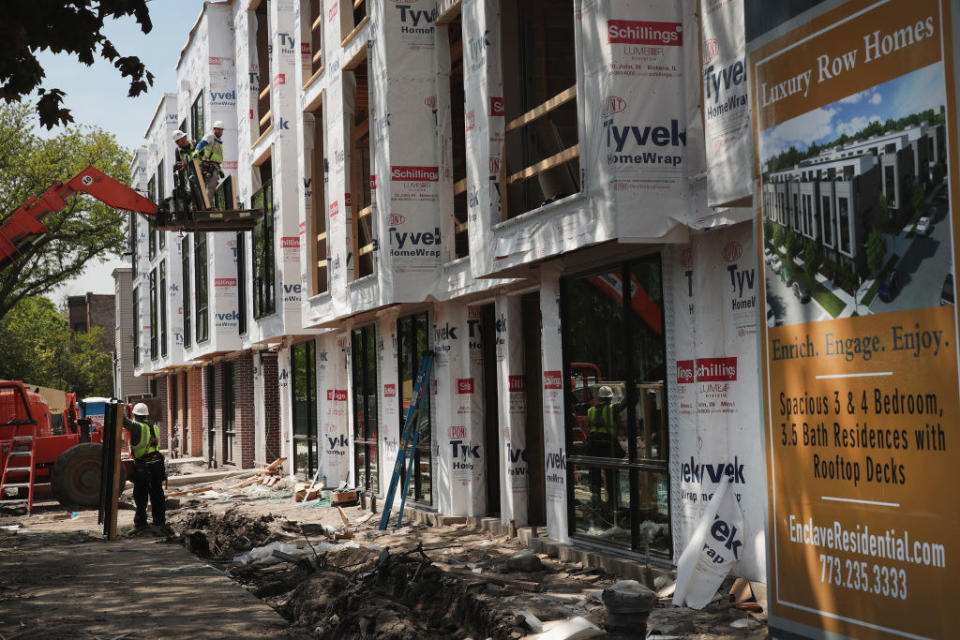
"At this point, there would need to be a significant increase in the housing supply to bring rents down nationwide, but builders may not add new units to the market fast enough to ease demand, and they may not be priced at affordable rates. The high cost of building materials is often cited by developers as the reason so many new constructions are priced at luxury price points."
Ultimately, Silbert says, "Policy action could potentially grant faster relief, but for those struggling to pay rents now, it’s best to find a more immediate solution than wait."
Nationally, you can send a message to your senators via the National Low Income Housing Commission urging them to pass laws that would create more affordable homes.
Since housing is so dependent on location, it's also really important to be aware of what's going on near you. Follow or join organizations in your area that advocate for affordable housing, and make calls or send emails to let your state and local representatives know that you want to see action on affordable housing.
How are rising rents affecting you? Share your experiences in the comments.
And for more stories about life and money, check out the rest of our personal finance posts.